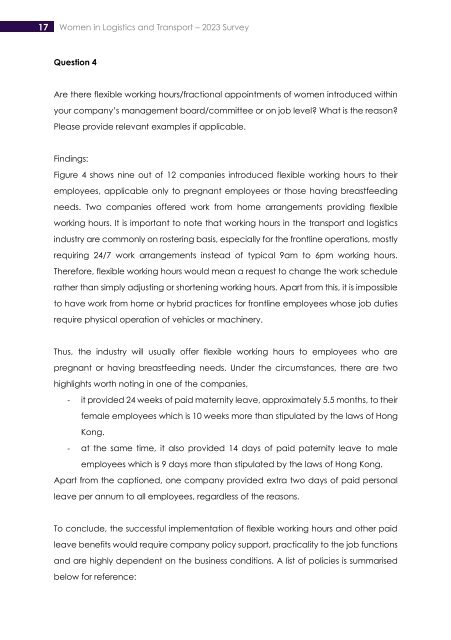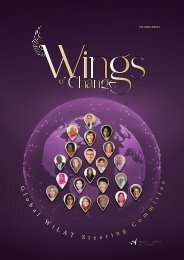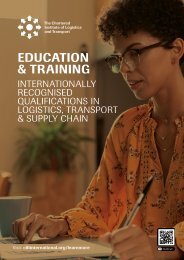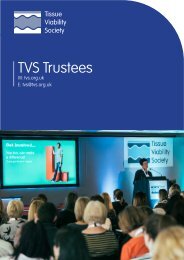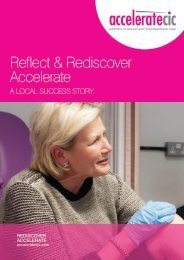WiLAT Survey Report 2023
Survey of Women in Logistics and Transport (WiLAT)
Survey of Women in Logistics and Transport (WiLAT)
You also want an ePaper? Increase the reach of your titles
YUMPU automatically turns print PDFs into web optimized ePapers that Google loves.
17 Women in Logistics and Transport – <strong>2023</strong> <strong>Survey</strong><br />
Question 4<br />
Are there flexible working hours/fractional appointments of women introduced within<br />
your company’s management board/committee or on job level? What is the reason?<br />
Please provide relevant examples if applicable.<br />
Findings:<br />
Figure 4 shows nine out of 12 companies introduced flexible working hours to their<br />
employees, applicable only to pregnant employees or those having breastfeeding<br />
needs. Two companies offered work from home arrangements providing flexible<br />
working hours. It is important to note that working hours in the transport and logistics<br />
industry are commonly on rostering basis, especially for the frontline operations, mostly<br />
requiring 24/7 work arrangements instead of typical 9am to 6pm working hours.<br />
Therefore, flexible working hours would mean a request to change the work schedule<br />
rather than simply adjusting or shortening working hours. Apart from this, it is impossible<br />
to have work from home or hybrid practices for frontline employees whose job duties<br />
require physical operation of vehicles or machinery.<br />
Thus, the industry will usually offer flexible working hours to employees who are<br />
pregnant or having breastfeeding needs. Under the circumstances, there are two<br />
highlights worth noting in one of the companies,<br />
- it provided 24 weeks of paid maternity leave, approximately 5.5 months, to their<br />
female employees which is 10 weeks more than stipulated by the laws of Hong<br />
Kong.<br />
- at the same time, it also provided 14 days of paid paternity leave to male<br />
employees which is 9 days more than stipulated by the laws of Hong Kong.<br />
Apart from the captioned, one company provided extra two days of paid personal<br />
leave per annum to all employees, regardless of the reasons.<br />
To conclude, the successful implementation of flexible working hours and other paid<br />
leave benefits would require company policy support, practicality to the job functions<br />
and are highly dependent on the business conditions. A list of policies is summarised<br />
below for reference:


